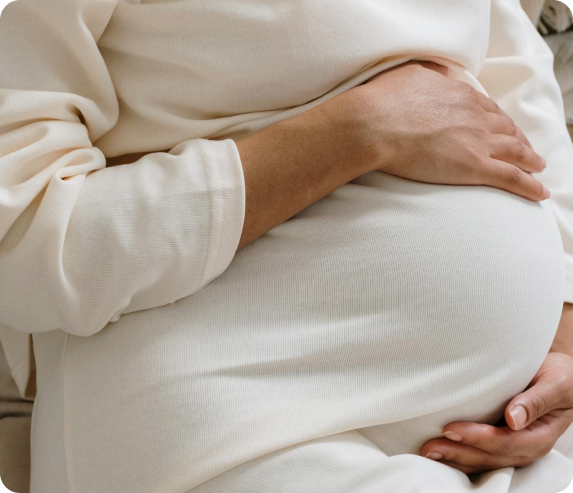
Donor programs involve the use of donated eggs or sperm to help individuals or couples achieve pregnancy. These programs offer hope to those facing genetic concerns, infertility, or single individuals and same-sex couples seeking to build their families.
In Australia, donor programs operate under strict ethical and legal guidelines to ensure safety, fairness, and transparency. As part of your journey, you will be guided through every aspect, from medical screenings to legal requirements.

Egg donation allows individuals or couples to experience pregnancy and childbirth when using their own eggs isn’t possible. This can be particularly beneficial for those with premature ovarian insufficiency, genetic conditions that could affect their children or age-related fertility challenges.
Sperm donation provides a pathway to parenthood for individuals or couples facing male infertility, single women or same-sex female couples.
Donated sperm can be used to fertilise an egg through procedures like intrauterine insemination (IUI) or IVF to achieve a pregnancy.

There are two primary types of donation arrangements in Australia:
Both types of donors must provide fully informed, voluntary consent without coercion, and all donation arrangements must adhere to relevant state and federal laws.
For more information, see Genea – Find a Donor.
To ensure the health and safety of all parties, both donors and recipients undergo comprehensive medical evaluations:

Australia has robust legislation governing donor arrangements to ensure ethical practices, protect donor-conceived children, and provide clarity to all parties involved. Here are the key legal and ethical principles:

Donors must be competent adults and provide informed consent free from any coercion.
All donations must be altruistic; payment or trading for eggs, sperm, or embryos is strictly prohibited. However, donors may be reimbursed for reasonable expenses incurred during the donation process.
In New South Wales, donor arrangements are limited to a maximum of five families, including the donor’s own family. This ensures diversity while avoiding overly complex familial connections.

Implications counselling is a mandatory step for all parties involved in donor arrangements. This counselling provides a space to explore the emotional, ethical, and legal aspects of donation and helps ensure all participants fully understand their roles and responsibilities.
Counselling may be done individually or in a group setting, depending on the arrangement. Recipients and donors are also encouraged to seek independent legal advice to understand their rights and obligations clearly. My team will assist you in navigating these requirements to ensure the process is as seamless as possible.

Carefully screened eggs or sperm from donors can significantly improve your chances of achieving a healthy pregnancy. This is especially helpful for individuals or couples who may have experienced difficulties with fertility or have certain medical conditions affecting their ability to conceive.
Donor programs are tailored to support a diverse range of family-building scenarios, whether you’re a single parent, part of a same-sex couple, or someone facing fertility challenges. This inclusivity means more people can realise their dreams of having a family, no matter their circumstances.
Donor programs focus on finding the right match for you. They help you identify donors based on specific preferences, such as physical traits, educational background, or even shared interests. You can feel more confident in the donor you choose.

Using a donor can bring up complex emotions, like sadness, anxiety, or uncertainty. It’s completely normal to feel this way, and it’s important to talk about your feelings. We can help connect you with counsellors and support systems to help navigate this.
Finding the right donor can feel overwhelming. You’ll have to think about things like physical traits, background, and values. Take your time with this decision, but remember that it’s okay to feel pressure to make the right choice. Reflecting on what matters most to you can help.
The legal side of donor programs isn't always straightforward - especially when using a known donor. My team ensures legal agreements are clear to protect everyone involved. This includes understanding parental rights, informed consent, and whether the donor will remain anonymous.
While donor programs usually involve detailed health screenings, there might still be worries about potential genetic or health risks for your child. It’s natural to think about the donor's medical history and any inherited conditions that could come into play.
Donor programs can be expensive and are not typically covered by Medicare. However, aspects of IVF may be eligible for rebates if you have a diagnosis of medical infertility. I’ll help you explore financial options and navigate potential costs.

Choosing to grow your family through donor programs is a deeply personal decision. With my expertise in fertility and donor arrangements, I provide compassionate, evidence-based care to help you navigate this journey confidently.
Together, we’ll ensure your experience is informed, supported, and tailored to your unique circumstances, helping you achieve your dream of parenthood.
Medically, the donor undergoes the following investigations:
Medically, the recipient undergoes the following investigations:
Implications counselling (individual and group, if known donor) is required.
For further information:
Dr Anthony Marren partners with Genea Fertility. Patient Relationship Coordinators (PRCs) will provide a quote based on the treatment plan plus Medicare/insurance status.
For further information on costs of fertility treatment in Sydney: Genea – Treatment Costs.
Depends on a number of factors such as:
For further information on IVF success rates: Genea – IVF Success Rates.